Lindsey Jacobellis
Lindsey Jacobellis interview: “My off time and the summer months are the most hectic for me really.”
Lindsey Jacobellis, five-times World Champion and ten-times X Games gold medallist, talks about the sport/life balance and how she has stayed at the top of snowboard cross for so long.
“I have stayed on a steady course and continued to grow and develop as well as this sport, so I don’t see myself stopping soon.”
This week’s athlete under the summer spotlight is Lindsey Jacobellis.
She’s been a face in the snowboard crowd for most of the last two decades. More than that – she’s been a front row feature.
Cast your gaze out, far out across the glittering firmament of modern winter sport. There’s a star that’s been shining brightly since the dawn of creation – alright, if not since the the dawn of creation then at the very least the dawn of snowboard cross.
The star you’re looking at is Lindsey Jacobellis and she has been a standout performer at SBX for more than a decade now.
If your primary contact with winter sports comes every four years as the Olympic spectacle passes by our media hemisphere, you could be forgiven for doing a double take on that statement. Because let’s face it, in four showings Lindsey hasn’t won a single gold medal and only once stood on the podium.
But for Lindsey Jacobellis victory comes around rather more frequently than the casual sports fan might have observed. Actually, 2nd in 2006, 5th in 2010, 7th in 2014 and 4th at Pyeongchang would be a respectable Olympic showing for most boarder crossers.
Lindsey Jacobellis is not most boarder crossers.
She is a five-time world champion. She is the winner of 29 World Cup gold medals and 10 gold medals at the X Games. Her victories are spread evenly from the beginning of her career a decade and a half ago to her most recent competitions going into the 2018 Olympics.
Lindsey has not merely attained the occasional peak; she’s ridden a steady plateau of success. She has found the most elusive and precious commodity for any athlete and that is consistency.
Lindsey might not win every race she enters, but she wins a lot of them. Over the years she has developed an intimate and very familiar relationship with victory, something she attributes to a rounded education on the mountain and an all-encompassing syllabus which, during her formative years as a rider, spanned every element of snowboarding.
“I think there are many components that have help me be successful with my sport,” she says. “I started young, around 12 years old, and that way I was able to grow as the sport was growing and evolving. I also competed in half pipe, slopestyle and GS. That helped me to be a great all around rider and being comfortable not only with speed but being in the air. I also went to a sports specific high school, Stratton Mountain School, were I was able to be on the mountain for part of the school day and was on a strict workout schedule. Being on such a hard routine early on has shaped me into the competitor I am today.”
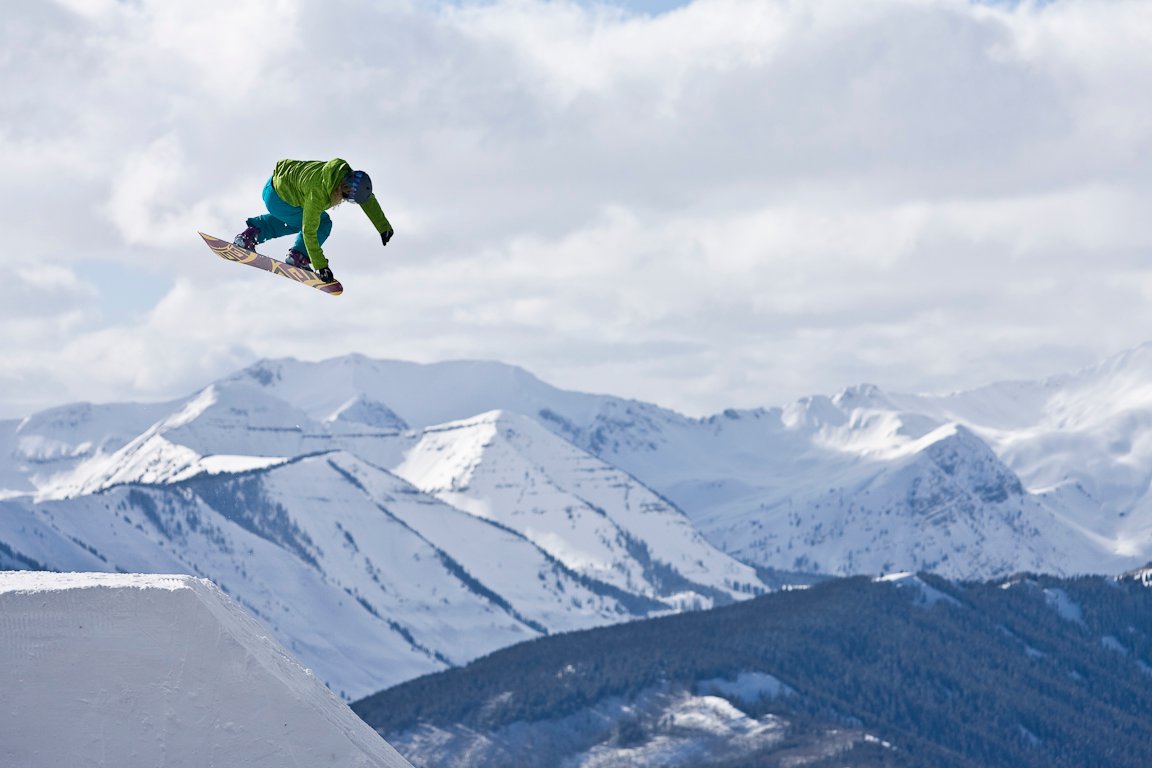
Stratton Mountain School is situated, as the name suggests, in Stratton, Vermont, and was an auspicious nurturing pool for the young Lindsey Jacobellis. Founded in 1972, the school has produced no less than 33 Olympians. It’s where Ross Powers, halfpipe bronze medallist at Nagano ’98 and Olympic Champion at Salt Lake City 2002, learned his skills. When it comes to winter sports the Stratton teachers know their stuff.
“When I was at Stratton, we were encouraged to do all the disciplines that snowboarding offered. Even if it was not what you enjoyed the most we did a lot of cross training because it helped freestylers with their turns, and therefore you can create and control your speed: more speed, more air in the pipe. Our coaches wanted us to have the best foundation to go off and then pursue the discipline we loved most. SBX was what I got started in when I was 11, 12 years old and was noticed by one of the Stratton Mountain coaches at the race, and he invited me to check out the school and see if that was something that I could be interested in trying out.”
As a suggestion it turned out to be a fortuitous one, a nudge in the direction of a sports career that the 12 year old Jacobellis would excel at for the next twenty years – and counting.
Looking at the Lindsey Jacobellis of today, you might think that the lady who won the 2017 world championship, took a sliver and two golds in last season’s World Cup races and finished fourth at Pyeongchang, would take a breather with the onset of summer. She has surely earned one, after all. But Lindsey doesn’t ease up. If anything, she gives the gas pedal a little squeeze.
“My off time and the summer months are the most hectic for me really,” she says. “I spend a lot of the time working out, continue to build my brand and look for new sponsors. I work at surf events and get into announcing. I travel to see family and friends and try to maintain a social life.”
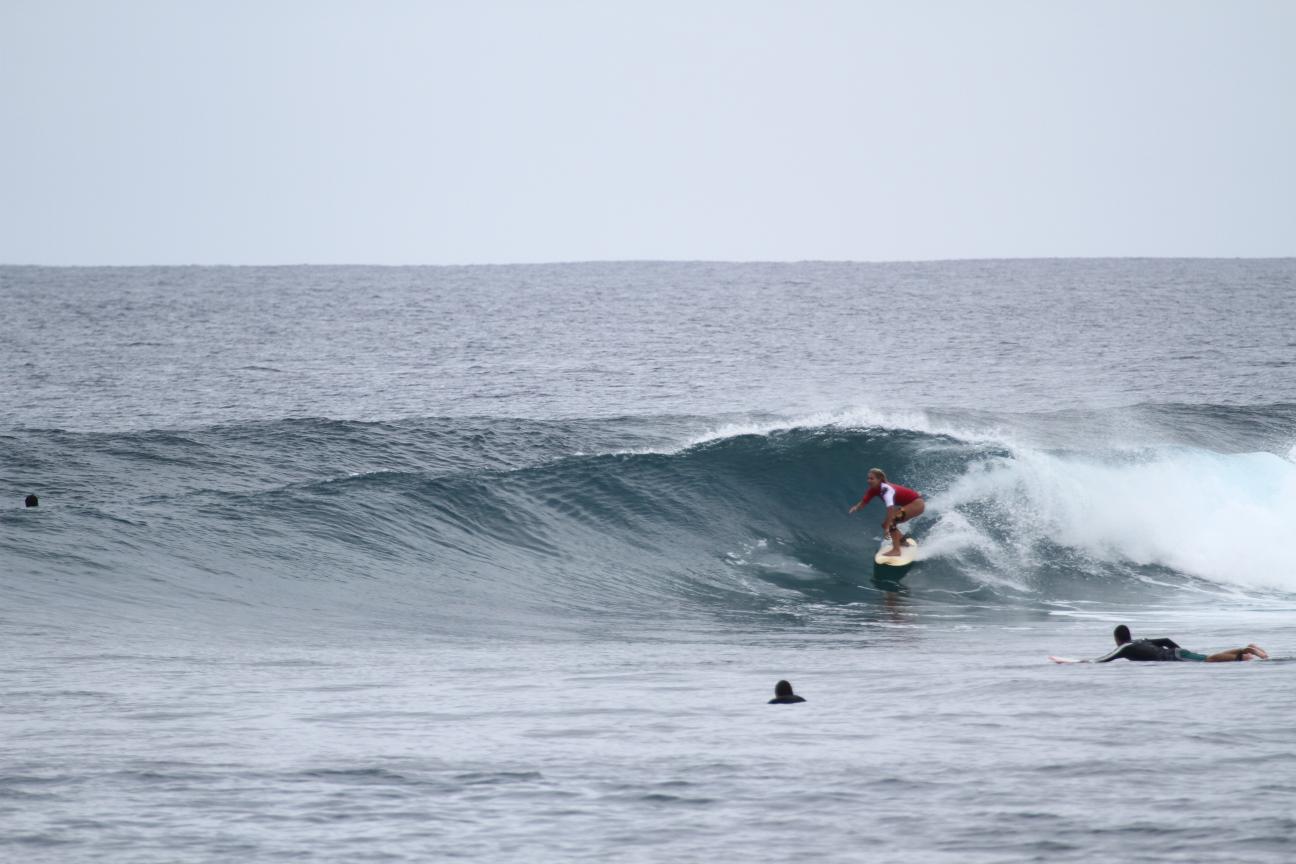
Maintaining any kind of social life is something all top athletes see as one of their greatest challenges. There simply aren’t enough windows in the schedule. That being said, when I ask Lindsey what her daily routine might look like, it’s clear that she has discovered at least a semblance of the sport/life balance, because there is the occasional day off, if you can call it that.
“My typical day could be wake up, walk my dog, eat breakfast and take my SmartyPants gummy vitamins, do some emails and make a list of what needs to be addressed that week. If the waves are good I’ll go for a surf. Or head to the gym – I go to the gym at least three times a week. Then eat lunch, come home and work on my house – I have been doing a lot of DIY stuff at my place. Or make any calls I need to, and take my dog for another walk or skateboard – she loves to run with me when I am skating. Then prep dinner and check emails.”
Lost as I am in the idyllic reverie of surfing the Pacific’s sun-spangled waters, I’m a Brit and thus fully conversant with the all-too fleeting nature of summer. Which makes it easy to dwell on the previous winter and also to consider the upcoming season. Lindsey can reflect on both with satisfaction. She might have missed out on a medal at Pyeongchang, but thirteen years after winning her first World Championship gold she’s still among the top competitors on the SBX circuit.
“I guess I figured when my body wants to stop it would tell me. I have stayed on a steady course and continued to grow and develop as well as this sport, so I don’t see myself stopping soon.”
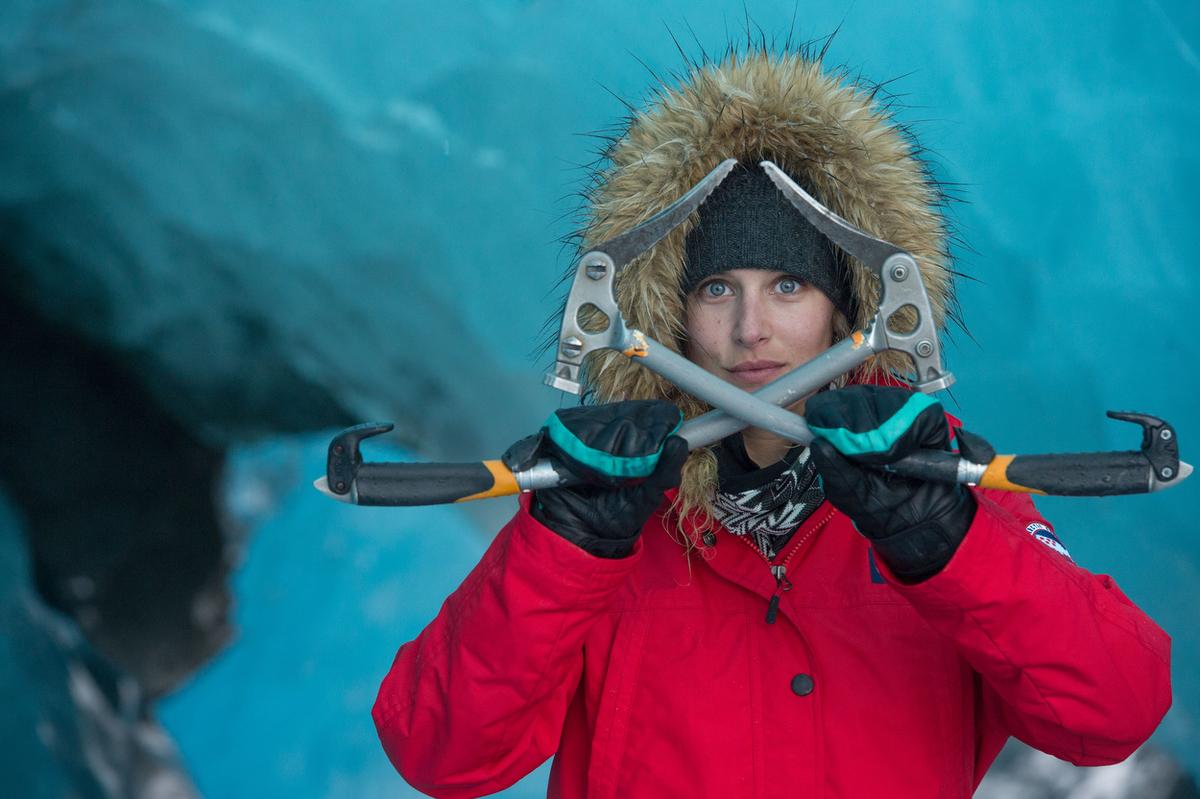
As for the Olympics, while that elusive gold would be nice, it’s not the be all and end all. The winter sport calendar is replete with events that transpire throughout the season, and not just once every four years. And that means Lindsey can’t afford to focus solely on that one event, even if it is still considered the greatest sports show on earth.
“Yes I have had my ups and downs,” she tells me, “and not the best turn out with Olympics but that is just one race of the many I do in a year. I won two races this past season leading into the Games and that was against the same women in Korea. So I know I have the ability, and I am still in the mix.”
Actually as far as the Olympics are concerned, Lindsey can count herself in the mix based on those 4-yearly performances alone. At Pyeongchang she finished a respectable, if torturous, fourth: having led for the first half of the race, she poked the nose of her board across the line 0.03 seconds behind Czech Eva Samkova and the bronze medal.
That was her most recent Olympic showing. Of course there’s also her first: Turin 2006.
No, I’m not going to ask Lindsey about the method grab that put paid to Olympic gold, a medal she had all but round her neck approaching the second to last jump. Partly because I don’t like it when someone rolls their eyes at me, partly because I don’t want to bore Lindsey with a question she has been asked thousands of times, but principally because it happened twelve years ago. Old news, right?
It’s true, the footage of Tanja Frieden charging ruthlessly past Lindsey in Turin plays in my mind as much as it probably did hers way back when. And yes, she drew her share of condemnation at the time, but look at it this way: Lindsey Jacobellis has been part of SBX almost since it was conceived as a sport. Whatever it is today, including its high octane spectator value, is in part down to her. And in any case, most crossers have some freestyle in their DNA. Jumps and grabs are layered in the strata of their genetic code so that they pull tricks almost instinctively. Also consider this: if she’d landed that grab, Lindsey would have been a national hero.
As I said, it’s in the past though, a long way in the past. Lindsey has won almost everything there is to win in the ensuing decade and a bit. Still, I reckon she agrees with me on the importance of entertainment.
“There are so many factors that are thrown into a race that you can’t control, and can greatly affect the outcome of a race, but that is what makes SBX a great sport to watch.”
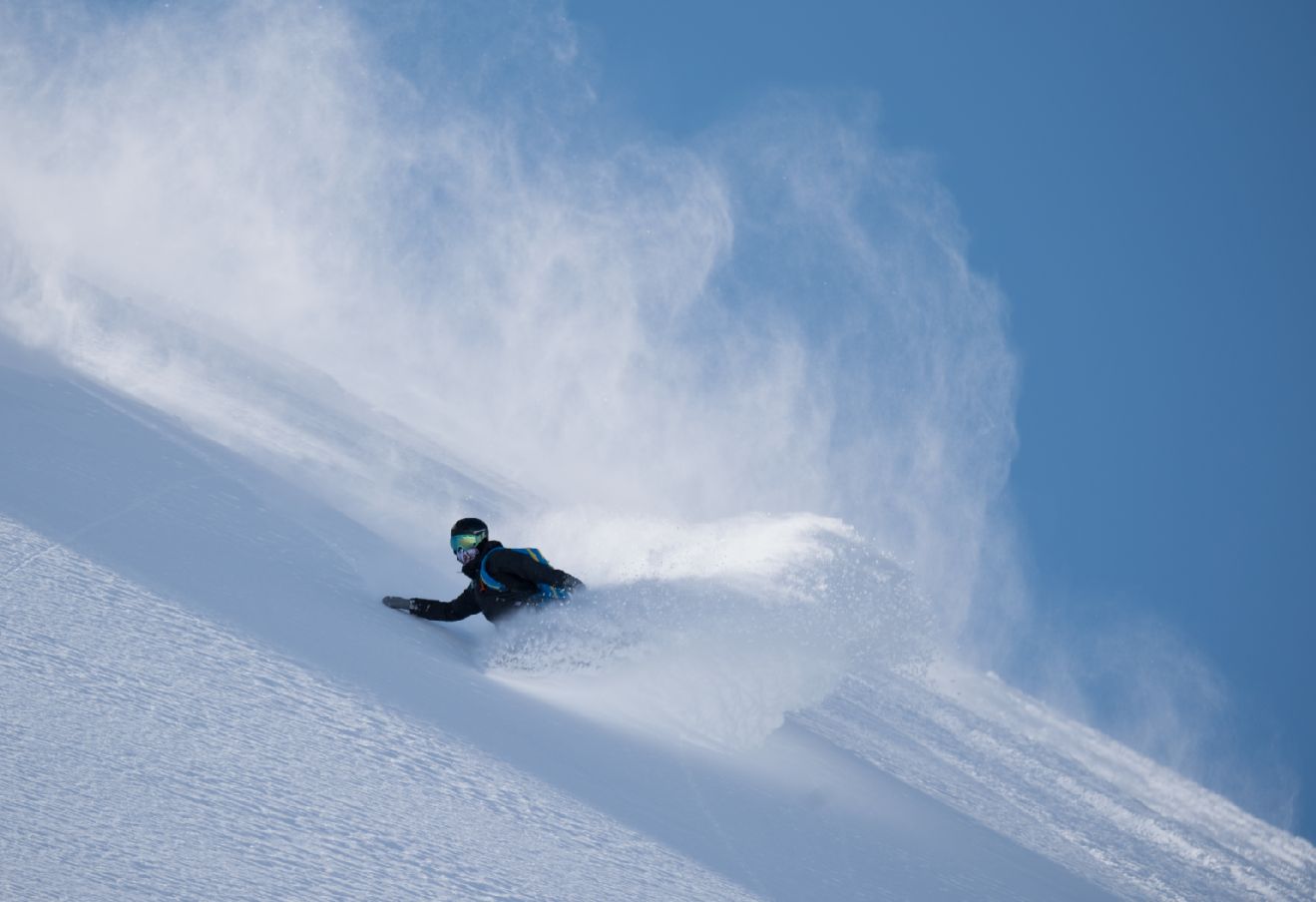
And here we arrive at a harsh truth: with no spectators there’s no sport. Or at least none that you can earn a living from. And the elite athlete, whatever their metier, has to get paid. They must generate their own remuneration, usually while participating in their sport; create an income that pays for competitions and all the associated fixtures – equipment, travel, training, physiotherapy – not to mention one that provides at least a basic living. To that end, most successful athletes must market themselves during their career and also in preparation for the post-competion afterlife.
Which is perhaps why, if you ask Lindsey Jacobellis about her greatest inspirations, she cites her parents above all others.
“There are so many athletes that have inspired me it would be hard to list them all. Each athlete was able to bring something to the table to help educate me of what to do during and leading to my more “seasoned” career. My parents were the guidance I looked for as I was coming up in my career. My father was an all star athlete and a successful businessman. My mother was a teacher and grew up with sports as well. My parents taught me that having a plan after my sport was just as important as being in the moment and competing. Also learning how to market myself was a much-needed skill that I learned, and I was implementing that from early on in my career.”
Thus we return to the beginning of the long and bountiful story of Lindsey Jacobellis. And if you’re an aspiring boarder crosser that’s a convenient – if often overlooked – place to start: set the right foundations from day one.
“Start with the local events,” Lindsey advises. “And do all the events: slope, SBX, pipe – all of these will make you a better all around rider. Start there and have fun with it.”
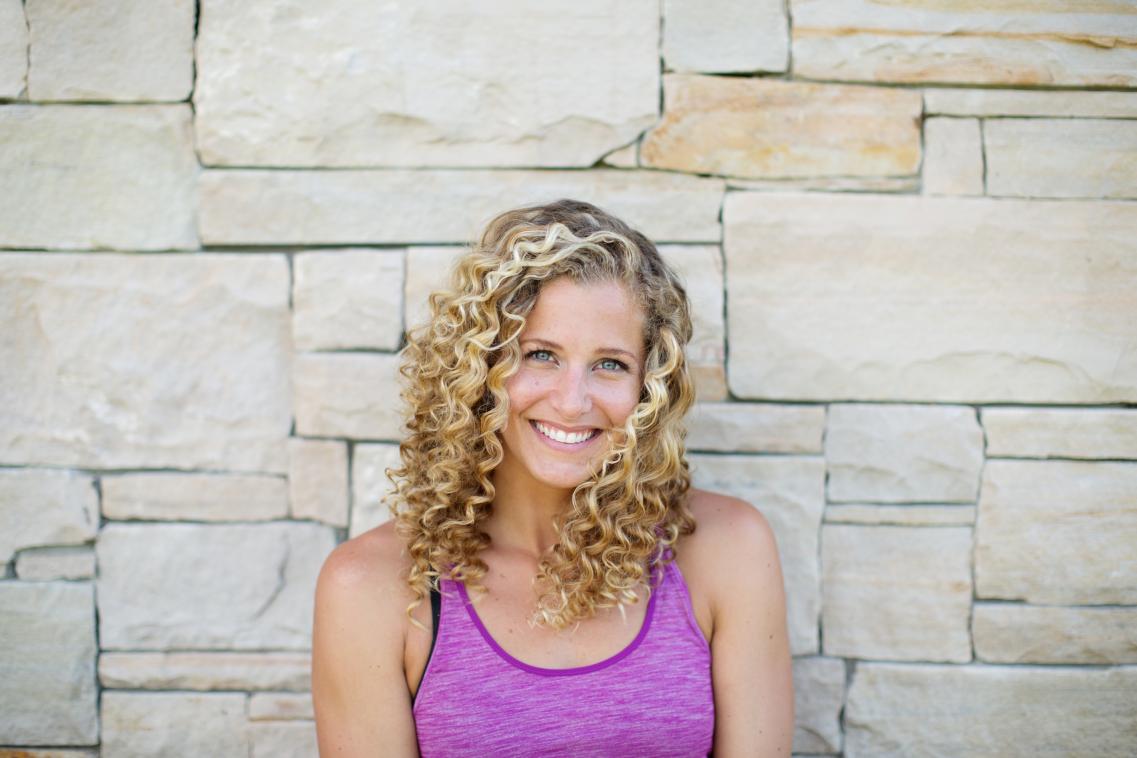
My thanks to Lindsey Jacobellis for her time and also to Matt Meyerson of RPRT for his assistance in arranging this interview.
You can keep up with Lindsey during her training this summer and competitions over the upcoming winter season at the following feeds:
Lindsey Jacobellis Twitter: @LindsJacobellis
Lindsey Jacobellis Instagram: @lindseyjacobellis
Lindsey Jacobellis Facebook: /LindseyJacobellis
Related article: Hanna Oberg
